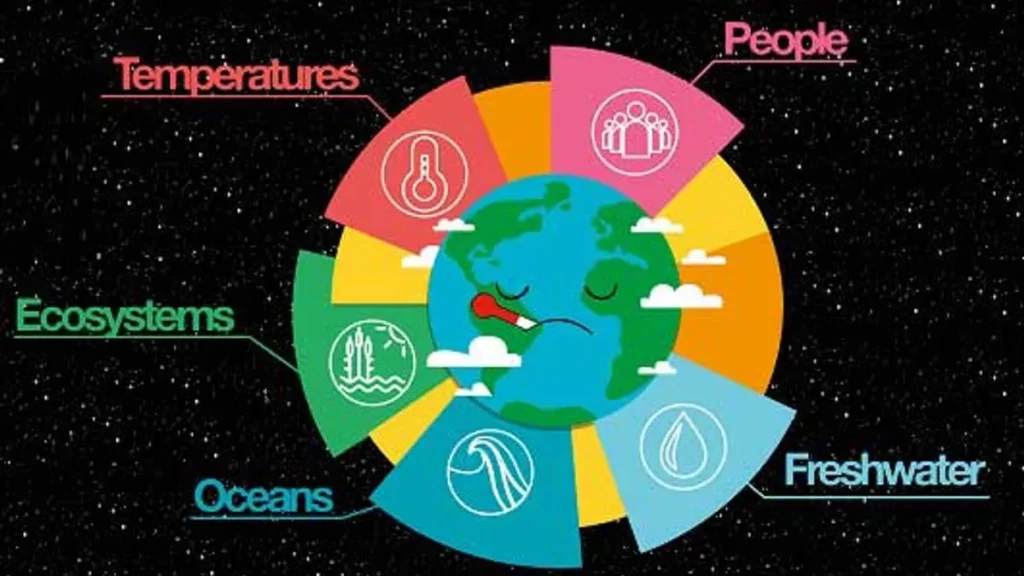
The climatic conditions affect every human being on a geographic standpoint ranging from healthcare, economies, liveli-hooods and the environment. Here are a few examples on how climate affects people:
Health and Well-being
Temperature Extremes: when conditions are too hot or too cold for a prolonged period of time, hot conditions are referred to as heat stress, on the other hand hypothermia can occur in extremely cold conditions, all of which may be fatal.
Spread of Diseases: When it comes to warmer areas, a great variety of diseases like malaria, dengue fever, etc. can be found.
Air Quality: a rise in temperature will increase the chances of air pollution while also manifesting in respiratory diseases and even cardiovascular diseases.
Mental Health: Climate change and other natural disasters have forced many individuals to relocate which in itself can be detrimental as it brings about stress and trauma especially in children.
Agriculture and Food Security
Crop Yeilds: The temperate of the soil along with rainfall patterns and harsh weather conditions have resulted in an increased food scarcity due to crop malnutrition.
Livestock and Fisheries: Alongside extreme weather patterns and changes in the ecosystem, water shortages have resulted in a decline of livestock and fish resources.
Water Resources
Availability: the pattern of precipitation has affected or given rise to floods and droughts further leading to water scarcity.
Quality: which eventually leads to a decline in the quality of water due to a rise in temperature, resulting in algae bloom.
Shelter and Infrastructure
Natural Disasters: Buildings, Roads and other types of Structure have been and will continue to be destroyed due to Sea level rise and other natural disasters, such as Hurricanes flooding etc.
Sea-Level Rise: Coastal regions are exposed to influx, which may cause millions of individuals to be displaced.
Economy
Agricultural and fisheries : Decline in productivity in these sectors directly deteriorate the standard of people as well as the economy.
Energy : Decreasing energy resources because there is an increase in demand for cooling with temperature rise.
Insurance and Recovery Costs: Extreme weather conditions are detrimental to the insurance industry since they lead to high claims and payment of recovery expenditures.
Biodiversity and Ecosystems
Species Migration: Animals and plants may migrate to new areas due to changing climates which in one way or another may interfere with ecosystems of such areas.
Extinctions: Loss of biodiversity by extinction of many species since they will not be able to adapt as quickly as possible.
Ecosystem Services: Further habitat changes may interfere with other services like pollination, water purification, and climate regulation.
Lifestyles and Culture
Traditional Practices: Indigenous individuals and cultures which are in regions with certain climates will get affected in terms of their traditional practices.
Recreation and Tourism: Climate change shifts the landscape of the region further affecting the ski resorts as well as the places for beach tourism and hiking spots.
Global Inequality
Disproportionate impact: Vulnerable groups especially from the global South worsen the impact of climate while contributing the least towards polluting and degrading climate.
Dealing and responding to these impacts poses a challenge that requires collaborative, creative and sustaining approaches on a global scale.
